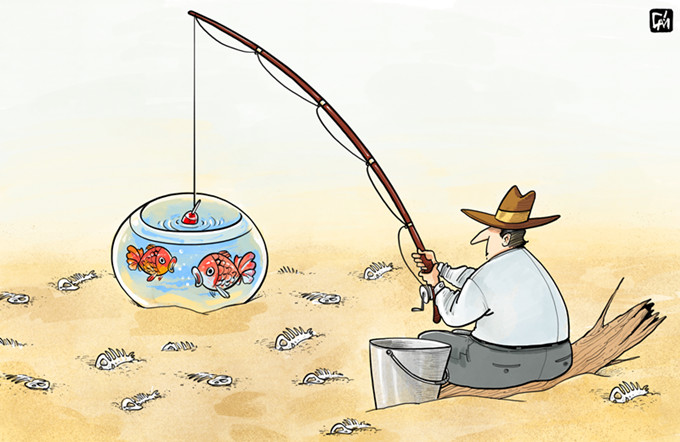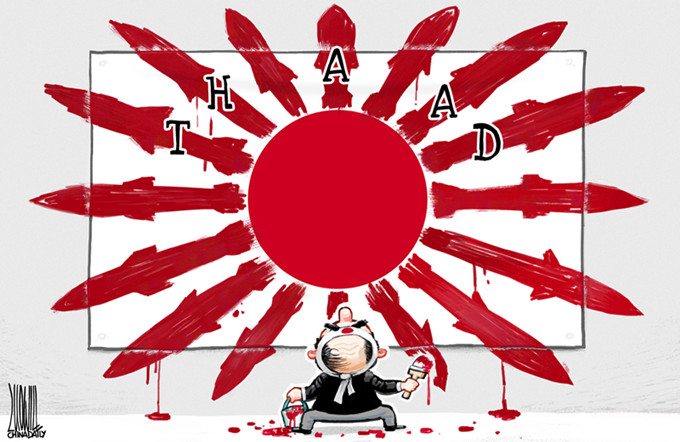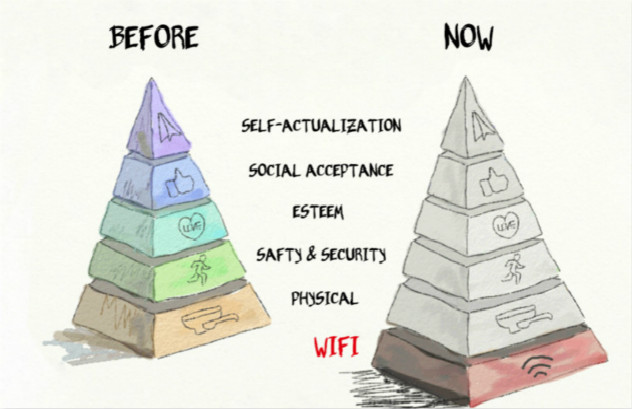China, India must be wary of Western media
Of late, the top e-mails in my inbox have had anti-China angles - articles giving me my daily dose of "detest-China" medicine. Conventional and traditional media - cut in the West and pasted in India - are inundated with diatribe against China's aggressive behavior, militant nationalism and expansionist designs, thwarting my hope to see India prosper without the encumbrance of war.
An India-China relationship that is devoid of fear is unpalatable to the intellectual insurgents of the Henry Luce-kind. The "Luce-ist" insurgents penetrate minds through myriad conservative and liberal think tanks and media houses. They use their pens (rather keyboards) and publications to push another war down our throats, much in the same fashion as they had in 1962.
Henry R. Luce was the post-World War II American media mogul, the owner of Time, Life, Fortune and the March of Time film and radio documentaries. It was a time when "freedom of the press belonged to the man who owned one". Luce used the power of the press in the most blatant fashion both on China and India. He was a publisher guided by missionary zeal (in fact, he was the son of an American missionary and was born in China). He wanted to see China as a Christian nation, gravitating to perform its role as an American policeman in the Asia-Pacific region.
The victory of the Communist Party of China in 1949 put paid to Luce's grand designs. But he refused to give up. Along with Alfred Kohlberg, a wealthy New York businessman, Luce continued to spearhead the "China Lobby" that was fanatically anti-communist and pro-Chiang Kai-shek. The lobby's aim was to guide former US president Harry Truman's China policy and ensure that the Indian military and political class became part of the scheme devised to overthrow the CPC.
It was easy for "Luce power" to work in India because the Indian elites were fluent in English and, more importantly, willing warriors in the anti-communist crusade. C. Rajagopalachari, independent India's first governor general, once said: "I am here to save my country from the traps and dangers of the communist party." Rajagopalachari's Swatantra Party, which he floated after leaving the ruling Indian National Congress, was one of the most vociferous Indian outfits demanding war against China in 1962.
Not surprisingly, Luce's Life magazine supported such demand and published an editorial in 1962 which said: "The Swatantra program could really get that huge country moving in a direction favorable to free institutions. The free world can wish this little party a big future."
At the end of the 1962 war, the Time magazine gleefully commented: "The current slogan is a revision of the earlier cry for brotherhood with China: 'Americans bhai-bhai; Chini hai-hai! (Americans are our brothers; shame on the Chinese!)'." One of the favorite Indian slogans before the war was: "Chini-Hindi bhai-bhai (Chinese and Indians are brothers)".
The "Luce brigade" is at work again, creating tales that sell the need for the Indian navy to operate in the South China Sea. In August 2011, the London-based Financial Times reported that the Indian navy ship, INS Airavat, had been challenged by a Chinese navy vessel in the South China Sea.
That the report was denied by the Indian navy failed to impress The Wall Street Journal, which continued to suggest that, "India is being pulled into a complex and increasingly tense territorial dispute in the South China Sea".
The "Luce" media urges Indians to observe the "defeat" in and not to forget the 1962 war, because they can't bear to "see" young Indians befriending the Chinese. In an age of all-pervasive media, the "Luce power" is even more lethal than what it was when Henry Luce exercised it in the 1950s and 1960s.
It is thus important for Asian people to understand the true nature of the anti-Asia lobby in the West, which is constantly pitching one Asian nation against another. Asian countries have to ward off the warmongers from the West, because peace is of paramount importance to the continent's forward march.
The author is a research scholar in international relations at the School of Liberal Studies, Ambedkar University, Delhi.
(China Daily 05/11/2013 page5)






















